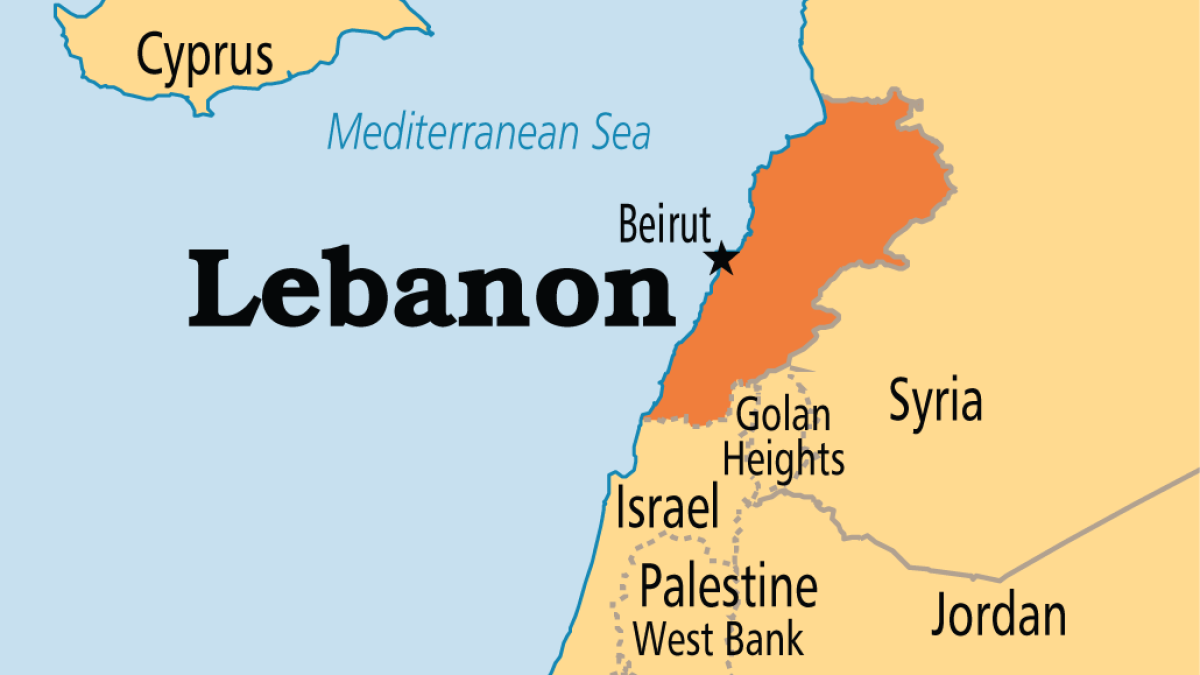"You Stink"

It was a stroke of genius that Lebanon's young protesters named their movement "You Stink". In just two words, they captured both the essence of their country's immediate crisis over uncollected garbage and its longer-term structural problems.
For months now, trash has been piling up in Lebanon's cities while the country's politicos were dickering over awarding contracts for collection and disposal. It's summer and the smell of rotting waste is everywhere present. But as the protesters correctly note, this mess is only a sign of the deeper rot that is Lebanon's corrupt and now paralyzed sectarian political system.
Parliament doesn't meet, can't muster the votes needed to elect a new president (and so the post has been vacant for almost two years), hasn't passed a budget in a decade, and has twice extended its mandate because it can't agree on how to run the next election.
One might say that Lebanon is the American Conservatives dream, the embodiment of their mantra-"the government that governs least, governs best"-that is, until you smell the garbage.
In the absence of effective state institutions, power and privilege reside in the country's clans and sects and the feudal chiefs who run them. In a perverse way, this weak state and the agreed upon distribution of power and patronage served, for a time, as a source of Lebanon's resilience. It provided members of each sect a degree of access and patronage, and absorbed their discontent. This system became ossified, but remained "the only game in town". Interference from Israelis, Syrians, and Palestinians, at different times in Lebanon's history, created unbearable pressures that severely tested this fragile order by distorting the country's demographics, communal relations, balance of power, and its ability to provide basic services for its citizens.
This is such a moment. The bloody war next door has inflamed passions, directly involved some Lebanese (most notably Hizbollah), and brought one and one-half million Syrian refugees into Lebanon, placing severe stress on the country's resources and decaying political system.
Observers have been surprised that, even with these pressures, Lebanon remained remarkably calm. Until now. "You Stink" is the first eruption of mass discontent.
Lebanon's problem are so deep, however, that they will not be solved by mass protests. The sectarian system is too entrenched and despite Lebanon's vibrant political culture and relative freedoms, there is a marked absence of non-sectarian national political institutions that can be vehicles for needed change.
Having said that, there is something to build on. In analyzing polls we have conducted in Lebanon over the past decade and a half, I have noted a remarkable convergence of views across sect lines that could form the basis for a broad-based movement for fundamental change. There are, to be sure, issues that divide Lebanese. But Lebanon is the only Arab country where all demographic groups state that their principle identity is their country, not "being Arab" or religious affiliation. And across sect lines, all Lebanese identify the same political priorities: expanding employment opportunities, ending corruption and nepotism, political reform, and improving the country's education and health care systems. Most notably, when asked if they support elections based on the current sectarian distribution or a "one man/one vote" model, majorities of Lebanese, from every group, say they favor the later approach.
Make no mistake about it, the existing structures will ultimately find a way to pick up their garbage, but they won't give willingly up their privilege. What Lebanon needs is a political movement that can embrace a non-sectarian national reform agenda; that can mobilize Lebanese on the issues that unite them; a movement that can field candidates, run in the next parliamentary elections, and begin the process of bringing a new generation of leaders to the table.
This is not the time to get dewy eyed, as some writers have done, and celebrate the Arab Spring's "second wind". Lebanon is not Egypt (which didn't turn out so well), nor is it Tunisia. The country does not need nor will it benefit from upheaval. It is too fragile and lacks national institutions that can absorb the shock of a radical overthrowing of the government, such as it is. What Lebanon needs is steady political evolution that can only come from a disciplined national movement with a strategic vision. It will not be easy, nor will change come quickly. But there is really no alternative.

















